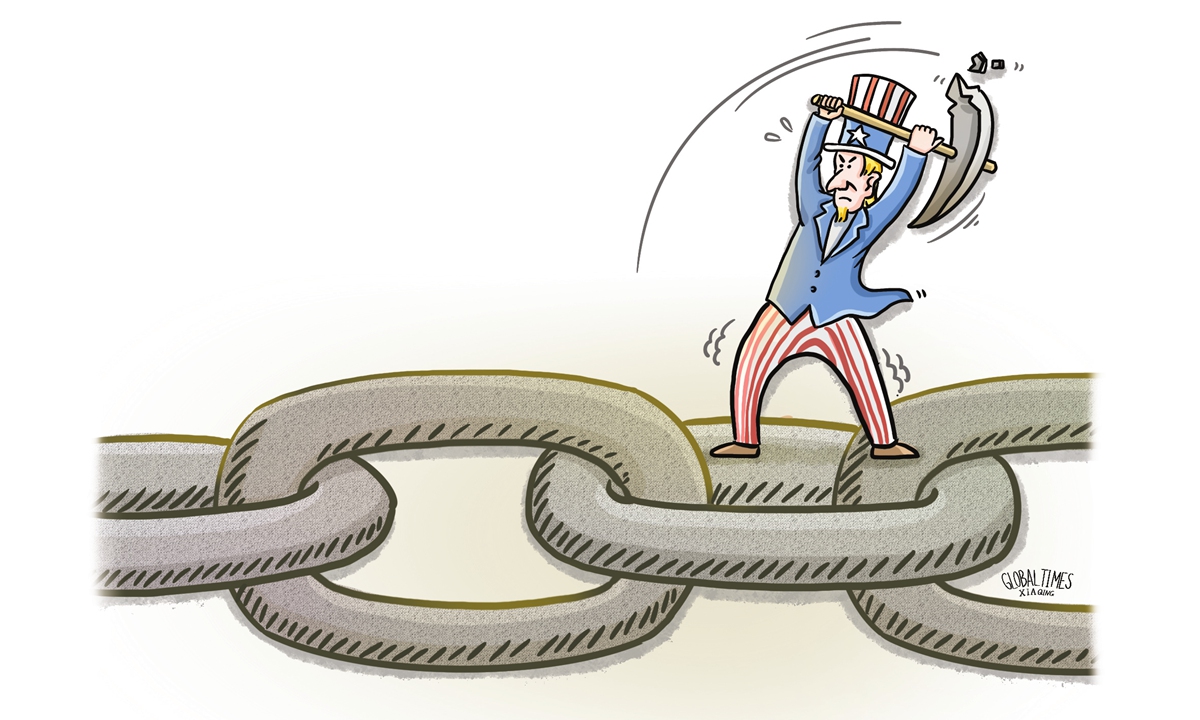
Illustration: Xia Qing/Global Times
US Treasury Secretary Janet Yellen arrived in China on Thursday, marking her second visit to China in less than a year. He Lifeng, Chinese vice premier and the Chinese lead person for China-US economic and trade affairs, held several rounds of talks with Yellen in the city of Guangzhou in South China's Guangdong Province.
Yellen's choice to start her visit in Guangzhou is reasonable, as the city is quickly becoming one of the most important bay areas in the world, known for its technological advancements and breakthroughs. During her time in Guangzhou, she also met with US, European and Japanese business representatives. This is a visit of pragmatism and realism that aims to enable Yellen to better understand the business environment in China as a whole.
Yellen's visit coincides with Washington's hyped-up rhetoric surrounding purported "Chinese overcapacity" in the clean energy sector, particularly in electric vehicles (EVs), lithium batteries and solar panels. I would tend to disagree with her description of overcapacity or this labeling put by the US government on EVs. The EV business is a sunrise business, and it is just starting not only in China but throughout the world. If there is any competition, the competition is between the EV industry and the traditional fuel industry. This competition is inevitable, and eventually the transformation from fuel cars to EVs is inevitable, and for the benefit of mankind.
This is not the time to make accusations of overcapacity. Such claims are often a cover for trade protectionism, and could prevent the US from embracing EV technology and the EV market. China has already established a strong presence in EV production. I think the sooner the US starts to engage in this inevitable transformation, the better. China can help the US make this transformation from fuel cars to EV cars.
Yellen talked a lot about China and the US not decoupling from each other, which not only reflects her own view but also that of US President Joe Biden. I hope Yellen, Biden and other government officials will refrain from discussing decoupling, as it is not a feasible option. No one knows what the consequences of decoupling between China and the US will be, but it's certain that decoupling will bring great disasters to the US.
Beijing and Washington need to realize that, whatever problems exist between China and the US, they need to be solved through peaceful negotiation. It's hoped that China and the US will deal with each other as equals, rather than trying to impose their own version of the truth onto the other side.
From the Chinese perspective, the US is not an enemy, adversary or rival, but rather an important country for China to engage with for mutual benefit on equal terms. China and the US need to get along with each other well.
It is hence encouraging to see that President Xi Jinping and President Biden recently had a phone call. Also, US Secretary of State Antony Blinken will soon visit China, and an annual working group meeting of the China-US Military Maritime Consultative Agreement was held in Hawaii recently. These actions suggest that both China and the US are willing to do their part to prevent any further deterioration of bilateral relations.
From the Chinese perspective, we want to deal with the US on equal terms and prevent the deterioration of relations between China and the US. If we lose stability, peace, mutual respect and mutual benefit in China-US relations, I can't foresee a world with peace, prosperity and development. It is time to take action to promote real friendship, peace and cooperation between China and the US.
The author is a chair professor at Soochow University and Vice President of the Center for China and Globalization. opinion@globaltimes.com.cn




